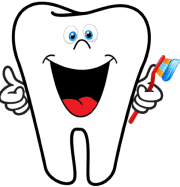
The Connection Between Diet and Oral Health: Tips for Healthy Eating
Many focus solely on brushing and flossing regularly to maintain good oral health. While these habits are crucial, another critical factor that often goes unnoticed is the role of diet in oral health.
The food we consume influences the health of our teeth and gums. When we adopt a healthy eating plan and consciously choose our food, we promote strong teeth, prevent dental problems, and improve our oral well-being.
So, how exactly does diet affect oral health? Let's delve into the connection and explore some valuable tips for incorporating healthy eating habits into our daily lives.
Diet and Oral Health: What's the Connection?
The foods we consume play an active role in determining the condition of our teeth and gums. A well-nutritious diet is imperative for maintaining strong teeth and gums, while poor dietary choices can lead to oral health issues.
We can promote optimal oral well-being by adopting a proactive approach to our diet. Making conscious food choices and embracing a nutritious diet can profoundly impact our teeth and gums. Nourishing our bodies with the proper nutrients strengthens our dental structures and helps prevent dental problems.
Recognizing the connection between diet and oral health empowers us to take control of our well-being. By incorporating wholesome foods and avoiding those that harm our teeth and gums, we actively contribute to a healthier mouth.
The connection between diet and oral health is multifaceted and significant. Here are some chief aspects of this connection:
- Tooth Decay and Cavities
Dental caries is one of the most prevalent oral diseases globally, affecting 2.3 billion people worldwide. Poor diet and exceptionally high sugar intake are significant contributing factors to tooth decay.
Consuming foods and drinks high in sugars and carbohydrates, such as candies, sodas, and sugary snacks, fuels harmful bacteria in the mouth. The production of acids by these bacteria causes tooth enamel erosion, ultimately resulting in cavities and tooth decay.
- Gum Disease
The development of gum disease, including gingivitis (inflammation of the gums) and periodontitis (advanced gum disease), can be attributed to a poor diet.

Nutrient deficiencies, particularly in vitamin C, can weaken the gums and make them more susceptible to infection. Moreover, a high intake of sugary and acidic foods can increase inflammation and plaque buildup, leading to gum disease over time.
- Nutritional Deficiencies
A diet lacking essential nutrients can adversely affect oral health. For example, calcium, vitamin D, and phosphorus are crucial for strong teeth and bones.
Inadequate consumption of these essential nutrients can weaken tooth enamel and heighten susceptibility to tooth decay. Similarly, deficiencies in vitamins C and B vitamins can contribute to gum disease and slower healing of oral tissues.
- Dry Mouth
Dry mouth, a condition characterized by insufficient saliva production, can be caused by specific medications and dehydration.
Saliva is crucial in preserving oral health by neutralizing acids, cleansing food particles, and offering disease-fighting properties. A dry mouth can elevate the risk of tooth decay, bad breath, and oral infections.
“A smile reflects inner health. Nourish your body with wholesome foods for a smile that radiates vitality”.
- Oral Cancer
While diet alone does not cause oral cancer, certain dietary factors can influence the risk. Avoid tobacco use as it's a well-known risk factor for oral cancer, and a diet low in fruits and vegetables may further increase the susceptibility.
Fruits and vegetables contain antioxidants and other beneficial compounds that help protect against cancer development.
- Tooth Erosion
Consuming acidic foods and beverages, such as citrus fruits, tomatoes, carbonated drinks, and sports drinks, can contribute to tooth erosion.
The acids in these foods and drinks soften the enamel, making it more susceptible to wear and deterioration. Tooth erosion can lead to tooth sensitivity, discoloration, and an increased risk of tooth decay.
Maintaining Strong Teeth and Gums: Tips for Healthy Eating
Our dietary choices can actively impact the health of our teeth and gums, with both positive and negative effects. Certain foods and beverages can contribute to oral health problems, while others can help strengthen and protect oral tissues.
Our bodies require specific nutrients to maintain strong teeth and gums. These nutrients help promote healthy development, maintenance, and repair of oral tissues. We can support optimal oral health throughout our lives by ensuring a balanced intake of essential nutrients.
Calcium, vitamin D, and phosphorus are vital in maintaining strong teeth. Calcium provides structural support for teeth, while vitamin D helps with calcium absorption. Phosphorus works with calcium to strengthen tooth enamel, protecting against decay and erosion.
Maintaining healthy gums relies significantly on the importance of vitamin C. This essential nutrient supports the formation of collagen, a key component of gum tissue. Adequate vitamin C intake helps prevent gum disease, as it keeps the integrity and resilience of the gums.
By incorporating a well-rounded diet that includes foods rich in these essential nutrients, we can provide our teeth and gums with the building blocks they need to stay healthy and strong. Milk, cheese, and yogurt, which are dairy products, serve as excellent sources of calcium and phosphorus.
Foods like fatty fish, fortified cereals, and egg yolks provide vitamin D. To boost vitamin C intake, we can enjoy citrus fruits, berries, broccoli, and leafy greens. Here are some tips for healthy eating:
- Focus on Whole Foods:
Choose whole, minimally processed foods whenever possible. These include fruits, vegetables, whole grains, lean proteins, and healthy fats. Whole foods are nutrient-dense and provide many vitamins, minerals, and antioxidants.

- Eat a Variety of Foods:
Incorporate diverse foods into your diet to ensure you get a broad spectrum of nutrients. Different foods offer different benefits, so aim for a colorful plate filled with fruits and vegetables of various colors.
- Control Portion Sizes:
Maintaining a healthy balance of nutrients requires careful attention to portion sizes. It is beneficial to utilize smaller plates and bowls and to be mindful of recommended serving sizes. Listen to your body's hunger and fullness cues to avoid overeating.
- Limit Added Sugars:
Minimize your consumption of foods and beverages high in added sugars, such as sugary drinks, candies, cookies, and processed snacks. Instead, choose natural sugars in fruits to promote healthy eating patterns.
- Reduce Salt Intake:
Limit your sodium intake by minimizing added salt in cooking and avoiding processed foods high in sodium. Flavor your meals with herbs, spices, and other seasonings instead.
- Stay Hydrated:
Staying well-hydrated involves drinking at least 8-10 glasses of water (on average) throughout the day. Water helps maintain oral health, aids digestion, and supports overall bodily functions. Limit sugary drinks and opt for water as your primary beverage.
- Prioritize Lean Proteins:
Choose lean protein sources, such as poultry, fish, beans, and legumes. These provide essential amino acids without excessive saturated fat. Incorporate plant-based protein sources into your diet as well.
- Include Healthy Fats:
Incorporate sources of healthy fats in your diet, such as nuts, avocados, olive oil, and seeds. These fats offer benefits for heart health and provide essential nutrients.
- Practice Mindful Eating:
Take the time to slow down and fully engage in your eating experience. Chew your food thoroughly and appreciate each bite. Practicing mindful eating can assist you in better recognizing your body's hunger and fullness signals, thus preventing overeating.
- Plan and Prepare Meals:
Plan your meals ahead of time and prioritize home-cooked meals. It will allow you to have control over ingredients and portion sizes. Prepare meals in bulk to have nutritious options readily available throughout the week.
Remember, making small, sustainable changes to your eating habits is critical. Aim for a balanced approach that focuses on nourishing your body with wholesome foods and be kind to yourself by allowing occasional treats in moderation.
Thoughts
The connection between diet and oral health is undeniable. Our food choices directly impact the health of our teeth and gums. By understanding the impact of diet on oral health, we can make informed decisions to support a healthy mouth. Nutrients like calcium, vitamin D, phosphorus, and vitamin C are vital in maintaining strong teeth and gums.
We can promote optimal oral health by embracing a diet rich in whole foods, controlling portion sizes, and limiting sugars and salts. Healthy eating is a lifelong journey; small changes remarkably impact our well-being and health. Let's prioritize our oral health by making mindful and nutritious food choices.
Contact your kids' dentist in Stockton, Dr. Sajjad Rizvi, D.D.S. at Happy Kids Dental, to know more about The Connection Between Diet and Oral Health: Tips for Healthy Eating.
Resource:
Preventative Care for Children: Tips for Good Oral Hygiene
*This media/content or any other on this website does not prescribe, recommend, or prevent any treatment or procedure. Therefore, we highly recommend that you get the advice of a qualified dentist or other medical practitioners regarding your specific dental condition.*
Subscribe To Our Newsletter
Get Updates And Learn From The Best


